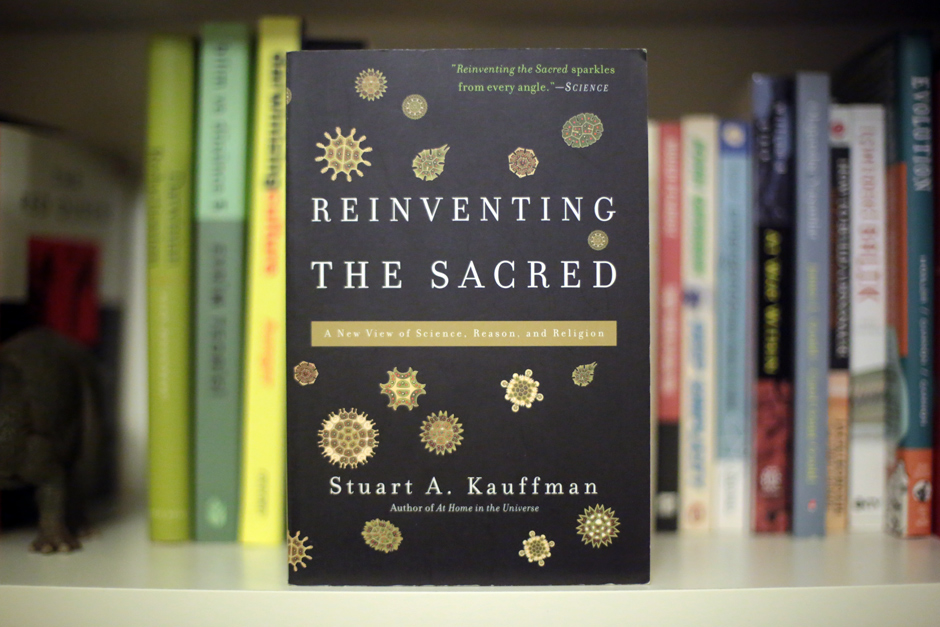Reinventing the Sacred
Review of Reinventing the Sacred: A New View of Science, Reason, and Religion by Stuart A. Kauffman

From an editorial point of view, this may be the worst book I’ve ever read – I’m not an editor, but I assure you, you become conscious of it when it’s this bad.
Kauffman is a scientist that I know and respect, and the subjects he’s covering in here are my favorites, but god he is horrible as an author. The whole book is like a homework done at the last minute: extremely repetitive both with ideas and with stock phrases sometimes going up to 10 words; full of technical examples that Kauffman fails to communicate with long cryptic sentences substituting mathematics and charts; badly organized, with out-of-place paragraphs everywhere; flowing like a collection of non-related essays, failing to construct a narrative and to connect with the main theme of “reinventing the sacred”; extremely repetitive both with ideas and with stock phrases sometimes going up to 10 words. It feels like nobody, including Kauffman, read it before it’s printed – the abundance of typos, especially with people’s names (Frank Geary, the architect?), supports this thesis. He even misquotes Searle’s famous Chinese Room argument as the man in the room is just handing back the Chinese translation of a phrase submitted in English, whereas in the original argument he is answering Chinese questions in Chinese.
From a philosophical point of view, I’m disappointed as well. The outline of the book is like this:
Reductionism fails. There is emergence in nature. So nature is creative. [The first 90% of the book where Kauffman offers technical examples and his non-conclusive anti-reductionistic interpretations of them.] We can treat this creativity as sacred. We can even call it God. We as humanity can unite under this God and develop a new global ethics and save the planet and love each other and live happily ever after. [The last 10% of the book which I found childish and boring.]
I will not go into his specific arguments in favor of emergence because (1) most of the time he admits that they are non-conclusive and (2) it seems to me that most of the time he is taking epistemological limitations of reductionism (and of his own mind) as proofs of ontological emergence (even though he’s aware of the distinction), with arguments like “It seems impossible to predict this, so it is emergent” or “I can’t think of an algorithm that can make the creative moves human mind makes, so human mind must be non-algorithmic”. It comes as no surprise when he joins Searle in dismissing the “mind-boggling” ideas of strong AI with lazy “I don’t think so”s.
A warning to prospective readers: Don’t be fooled by the friendly generic title “Reinventing the Sacred: A New View of Science, Reason, and Religion” – you won’t be able to get through this book if you’re not already familiar with the reductionism-emergence debate in philosophy of science, and don’t have some background knowledge in biology, thermodynamics, mathematics, statistics and quantum physics. And economics. And philosophy of mind. Yep. That would be all.


Leave a Comment
Join the conversation.